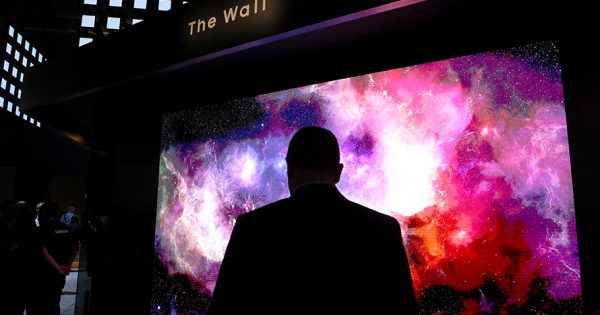At last week’s Consumer Electronics Show in Las Vegas, the 200,000 attendees—not to mention everyone else following from afar—were, like most years, promised the future. There were, like most years, plenty of internet-connected devices, virtual reality and augmented reality announcements and demos, half-baked or nearly cooked 5G cars and phones and adorable robots.
And yet, despite all of the innovation on display at the Las Vegas Convention Center, agency executives scouting the showroom floor said nothing necessarily stood out. Everything was, in some sense or another, “incremental.” Perhaps the days of the big, splashy tech debuts are waning. According to agency and venture capital executives, that may not be a bad thing.
Sheldon Monteiro, chief technology officer of SapientRazorfish, said the incremental innovation of tech at CES is almost described by some “in a lamenting sort of way.”
“But the thing is, there are very few years where you have these [breakout announcements],” he said. “But in my view it doesn’t mean they aren’t absolutely great years.”
Monteiro’s not the only one who’s noticing the convergence within the Internet of Things (IoT). In fact, some say the lack of blockbuster ideas has given way to a “period of refinement,” according to Tom Goodwin, executive vice president and Head of Innovation for Zenith Media.
“I think what most impressed me was the idea that we’re starting to make sense of technology,” he said. “Every year at CES, there’s been extra things. It’s been about a sort of divergence in what’s possible—it’s about new possibilities, new technologies, new ideas, and none of them have really made sense before. And this year, for the first time, you’ve started to see those threads come together. You start to see how technologies can work with each other. You start to see companies coming to alliances, the notion of interoperability.”
According to the Consumer Technology Association, the group that organizes CES every year, the consumer tech industry could see nearly $400 billion in retail revenue this year. The growth, up 3.9 percent from 2018, is largely driven by increases in artificial intelligence and connected technologies. For example, within that $398 billion, CTA expects smart home revenue to be up 17 percent, growing to $4.6 billion, while smart watches will increase by 19 percent to $4.7 billion.
Of course, the voice market continues to grow as well. According to eMarketer, 74.2 million people in the U.S. will use a smart speaker this year, a 15 percent increase from 2018. And by the end of 2019 a fourth of all U.S. adults will use them once a month. Of smart speaker users, nearly 80 percent use theirs for audio listening, while 37.1 use them for shopping and 34.5 percent use them to control their smart home.
It’s no surprise that the voice market is evolving. While tech companies like Google, Amazon and Apple all have their own smart speaker, CES 2019 saw more companies making more devices assistant agnostic. For example, the Vuzix Blade augmented reality glasses have both Amazon and Google’s AI voice assistants, and Microsoft’s been installing its Cortana for more than just its Xbox.
“The company that controls the hardware also controls the software,” said Leigh Christie, director of Isobar’s NowLab–which focuses on emerging tech including VR, AI and IoT.
While improvements in the IoT space are leading to a lot more data, the data collected becomes far more useful than interesting information on a device’s dashboard. That includes lot of personalization. The focus has often been on merely dashboards tracking data–on Fitbits, Apple Watches and other wearables—though Monteiro said he saw a number of devices at CES this year that helped for personalization.

